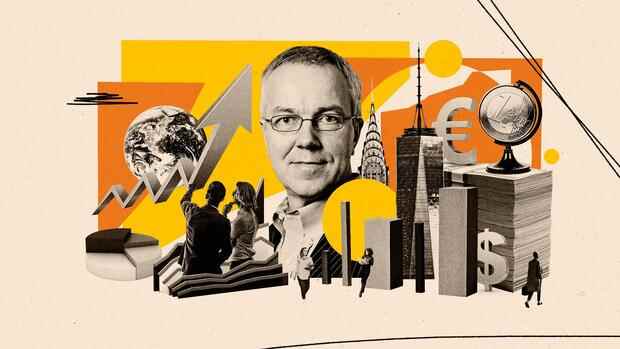Economics is 50 percent psychology. Ludwig Erhard’s old wisdom has probably never been as valuable as it is today, as economists and central bankers are puzzling over how to get the sharply rising prices under control.
The crux of inflation is that it is not only determined by fundamental economic forces such as sharply rising energy and food costs, but is also driven by our fears. For the money guardians, inflation expectations are the most important signal of how great the risk of inflation really is.
Jay Powell, head of the US Federal Reserve, warned that the high inflation rates “anchored in people’s minds” after the inflation rate in the USA rose to seven percent. Apparently, the new head of the Bundesbank, Joachim Nagel, fears the same thing when, when he took office, he pointed out the danger that “the inflation rate could remain elevated for longer than currently expected”. And ECB Director Isabel Schnabel promised to take greater account of “surveys on household and corporate expectations” when making monetary policy decisions.
Persistently high inflation expectations are so dangerous because in the past they have usually led to workers increasing their wage demands and companies increasing their prices in order to protect their incomes from constant depreciation. This is how the infamous wage-price spiral develops, which can usually only be stopped by massive interest rate increases, which in turn often leads to a recession.
Top jobs of the day
Find the best jobs now and
be notified by email.
The economic explanation for this self-reinforcing inflationary process was provided by Nobel Prize winners Milton Friedman, Edmund Phelps and Robert Lucas in the 1970s.
They argued that inflation is driven almost entirely by public expectations. Since then, the central bankers have been trying to bring inflation expectations under control, for example through numerical inflation targets or confidence-building communication.
In practice, the currency watchdogs rely on three instruments: Price signals from certain financial products such as bonds and swaps linked to the expected inflation rate. Surveys of financial professionals and consumer sentiment test. So far, the central bankers have trusted the moderate inflation expectations on the financial markets more than the sometimes panicky fears of inflation among the general public.
Which also has to do with the fact that many people only notice and take inflation seriously when they expect a sharp rise in prices. It is true that inflation expectations on some financial markets have meanwhile risen above the ECB’s target of “just under two percent”.
However, they are not so far above that that an abrupt turnaround in monetary policy with imminent interest rate hikes could be justified in the euro zone. In the USA, on the other hand, things are different. There are first signs here that fears of inflation are being reflected in higher wage demands.
Consumer fears
The tricky thing about inflation expectations, however, is that actual price developments are strongly influenced by public fears – whether they are justified or not. This makes monetary policy a tightrope act: Even if the price level is currently being pushed up temporarily by temporary supply bottlenecks or temporary government stimulus packages, inflation can become a self-fulfilling prophecy due to fears and expectations among consumers and companies.
In the years leading up to the pandemic, the ECB learned painfully how difficult it is to change inflation expectations when it failed to raise the economy’s price expectations from a deflationary low. After years of falling prices, inflation had lost its terror for consumers and companies.
The current danger is exactly the opposite: the inflation mood in the economy could switch from ignorance to panic mode and force central bankers to curb fears that have gotten out of control with tough measures. Even if they have to accept serious economic collateral damage to do so.
More: Fed puts ECB under pressure: Bund yield could rise significantly
